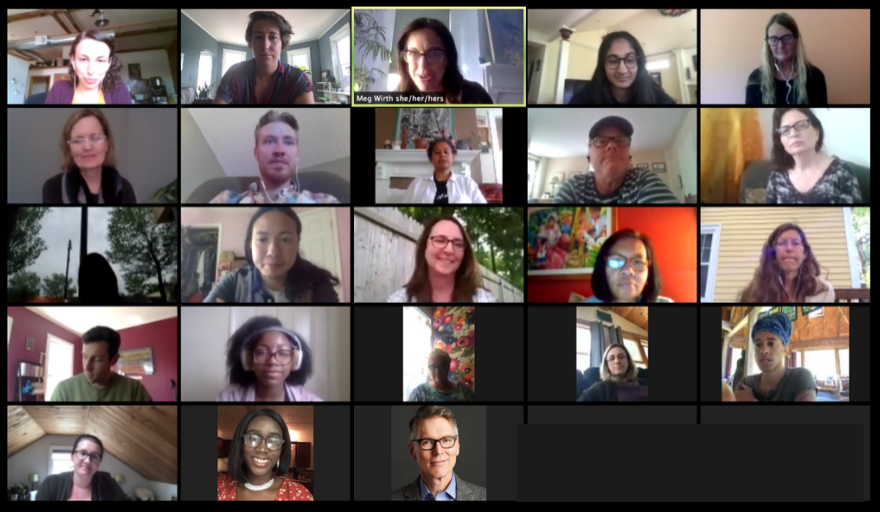SEG is thrilled to welcome 15 social ventures to our COVID-19 Response Incubator! Our cohort of entrepreneurs will meet for 7 weeks to develop ideas for addressing the various social/public health challenges that have emerged as a result of the COVID-19 crisis. As the challenges of 2020 continue and deepen, we need more innovative ideas than ever before to help find new pathways through new problems.
The COVID-19 Response Incubator focuses on disruptive innovation, including identifying needs, developing and assessing the feasibility of solutions, and launching and testing pilots. It includes workshops on emergency responsiveness, design/user research, landscape analysis, value proposition, adaptive strategy, business model canvas, financial management, and other relevant topics.
Participants and projects selected for the Incubator are:
David Ahlborn, Junia Janvier, and Beyanca Guilme, Providence
“Liberational Arts Collective,” a virtual “crash” course for youth ages 14-19 in design thinking, entrepreneurship, community organizing/ activism, and civic engagement with the goal to nurture, sustain, and scale a grassroots movement of youth to advocate for community needs in the (post-) COVID world.
Susan Ahlstrom, Ridgefield, Conn.
The SAMSEL (Stress and Anxiety Management for Social Emotional Learning) program, which provides youth and teens with self-care and mental health skills and strategies through SEL-based experiences and curriculum.
Lauren Alvarez, Providence
A greengrocer with a pop-up model that can deploy to neighborhoods as needed, providing fruits and vegetables to supplement the staples that are available at convenience stores and corner markets, focused on being cost-effective, mobile-ready, and scalable when needed.
Martha Donovan, Barrington, and Wendy Black, Warwick
Bilingual play-based learning kits that provide engaging materials for children, help families support children’s developmental growth, creativity, and critical thinking during play, and provide teachers with activities aligned to the RI Early Learning Domains.
Dorian Harding-Morick, New Haven, Conn.
A disposable membrane (and dispenser) which provides a barrier between a user and a keyboard.
Jennifer Jimenez-Wheatley, Saint Joseph, Minn.
A food truck that will enable refugee and immigrant women to build economic capital that can lead to social capital and leadership.
Jo Lee, Providence
An extension to the PopUp Rhody marketplace service to enable businesses to engage with existing and new audiences virtually.
Jeffrey Matteis, Cranston
Cooperative resource sharing for farmers, along with multimedia content that tells a new story around local food and demonstrates resilience and hope, further shifting the culture towards a more regenerative way of being.
Luisa C. Murillo, Providence
Sandy’s App, a donation app that can be used by nonprofits to request pet food donations and feminine hygiene products for sale, similar to an online store but with donated items.
Stephanie Nitka, Pawtucket
Intensive community engagement that taps the local talents of local people to identify issues/solutions, using creative arts as one tool for engagement and creating employment opportunities by building partnerships.
Ned Roosevelt, Sugar Hill, N.H.
My Grandson, a personal concierge service that caters to those most vulnerable to COVID-19 and helps to bridge the gap between generations.
Bradly VanDerStad, Providence
Providence Growing Businesses Coalition, a private community-focused nonprofit that functions to promote Providence as a business destination, connects businesses to college graduates, and much more.
Rishma Vora, Manlius, N.Y.
Project Olas, which offers online Spanish practice taught by moms in vulnerable Central American communities for high-impact language learning via WhatsApp.
Kian Xie, Uxbridge, Mass.
Corporate Hidden Gem, which develops frameworks, processes, and analytics that enable patient care delivery teams to standardize their innovation process, make data-driven, patient-centered decisions as to which programs and partnerships to develop, and ensure resources are spent in alignment with strategic goals.

